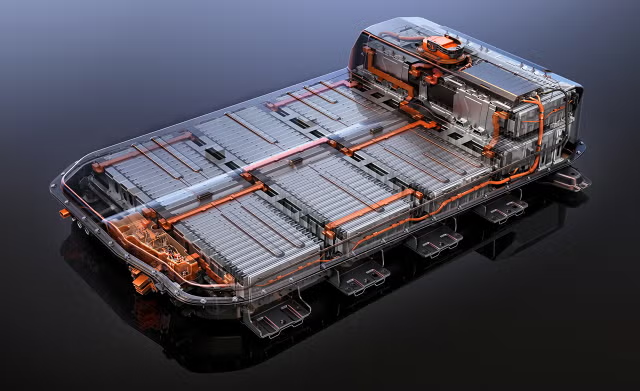The electric vehicle (EV) revolution is charging ahead, driven by rapid advancements in battery technology. In 2024, we’re poised to see breakthroughs that could change the landscape of sustainable mobility. According to Bloomberg Green, the global EV market is expected to grow by 36% this year, with battery innovations playing a pivotal role in this expansion. In this article, we’ll explore the game-changing battery technologies set to redefine EV performance, range, and sustainability. Whether you’re an EV enthusiast or considering your first electric car, understanding these innovations could guide your next purchase or investment.
The Rise of Solid-State Batteries
Solid-state batteries are one of the most anticipated advancements in EV technology. Unlike traditional lithium-ion batteries, which use liquid electrolytes, solid-state batteries employ a solid electrolyte. This innovation promises several benefits:
- Increased Energy Density: Solid-state batteries can store more energy in the same volume, potentially doubling the range of EVs.
- Faster Charging: These batteries offer significantly reduced charging times, allowing for a full charge in minutes rather than hours.
- Improved Safety: The absence of liquid electrolytes reduces the risk of leaks and fires, a concern with current lithium-ion batteries.
According to a report by Wired, Toyota and Volkswagen are leading the charge in solid-state battery development, with both companies planning to integrate these batteries into their vehicles by 2025. As these batteries become commercially viable, they could significantly enhance the appeal of EVs to a broader audience.
Advancements in Lithium-Ion Technology
While solid-state batteries are on the horizon, significant improvements are also being made to existing lithium-ion technology. Companies like Tesla and Hyundai are investing heavily in research to enhance the performance and longevity of lithium-ion batteries. Key advancements include:
- Silicon Anodes: By replacing graphite with silicon in the battery anode, manufacturers can increase the energy density by up to 30%. This change could extend the range of EVs without increasing battery size.
- Cobalt-Free Batteries: As highlighted by CleanTechnica, several manufacturers are developing cobalt-free batteries to reduce costs and environmental impact. These batteries are not only cheaper but also more sustainable.
Tesla’s latest Model S Plaid, for instance, uses advanced lithium-ion cells that offer a range of over 390 miles on a single charge. As these improvements continue, lithium-ion batteries remain a cornerstone of the EV industry.
The Role of AI in Battery Management
Artificial Intelligence (AI) is playing a crucial role in optimizing battery performance and lifecycle. AI algorithms can analyze vast amounts of data to predict battery health, optimize charging cycles, and even prevent overheating. Here’s how AI is transforming EV batteries:
- Predictive Maintenance: AI can predict when a battery is likely to fail, allowing for timely interventions and reducing the risk of sudden breakdowns.
- Optimized Charging: AI-driven charging systems can optimize power input, reducing charge time and enhancing battery longevity.
- Energy Management: AI can balance energy distribution, ensuring that batteries operate at peak efficiency.
According to MIT Technology Review, companies like Rivian and Lucid Motors are integrating AI into their battery management systems, offering users enhanced control and insight into their vehicle’s performance.
Practical Tips for EV Buyers in 2024
With these advancements on the horizon, prospective EV buyers should consider several factors:
- Evaluate Battery Technology: Consider vehicles with the latest battery technology for better range and efficiency.
- Check Charging Infrastructure: Ensure access to fast-charging stations, especially if opting for vehicles with cutting-edge battery tech.
- Consider Total Cost of Ownership: Factor in battery longevity and maintenance costs, which can vary with different technologies.
Where to Buy and What to Compare
- Buying Locations: Major EV manufacturers like Tesla, Nissan, and Ford offer vehicles through online platforms and dealerships. Consider checking Electrek and AutoCar for the latest deals and reviews.
- Comparison Metrics: Compare EVs based on range, charging speed, and battery warranty. Websites like InsideEVs provide comprehensive comparisons and user reviews.
Conclusion: The Future of EV Batteries
The battery innovations of 2024 are set to propel the EV industry into a new era of efficiency, sustainability, and performance. From solid-state breakthroughs to AI-driven management systems, these advancements promise to make electric vehicles more appealing and accessible than ever before. As we look to the future, one question remains: how quickly will these innovations become mainstream, and what new technologies will emerge? Stay tuned, as the electrifying journey of EV evolution is just getting started.
In the meantime, consider how these technologies might influence your next vehicle choice or investment in sustainable mobility. What are your thoughts on the future of EV batteries? Share your insights in the comments below!

